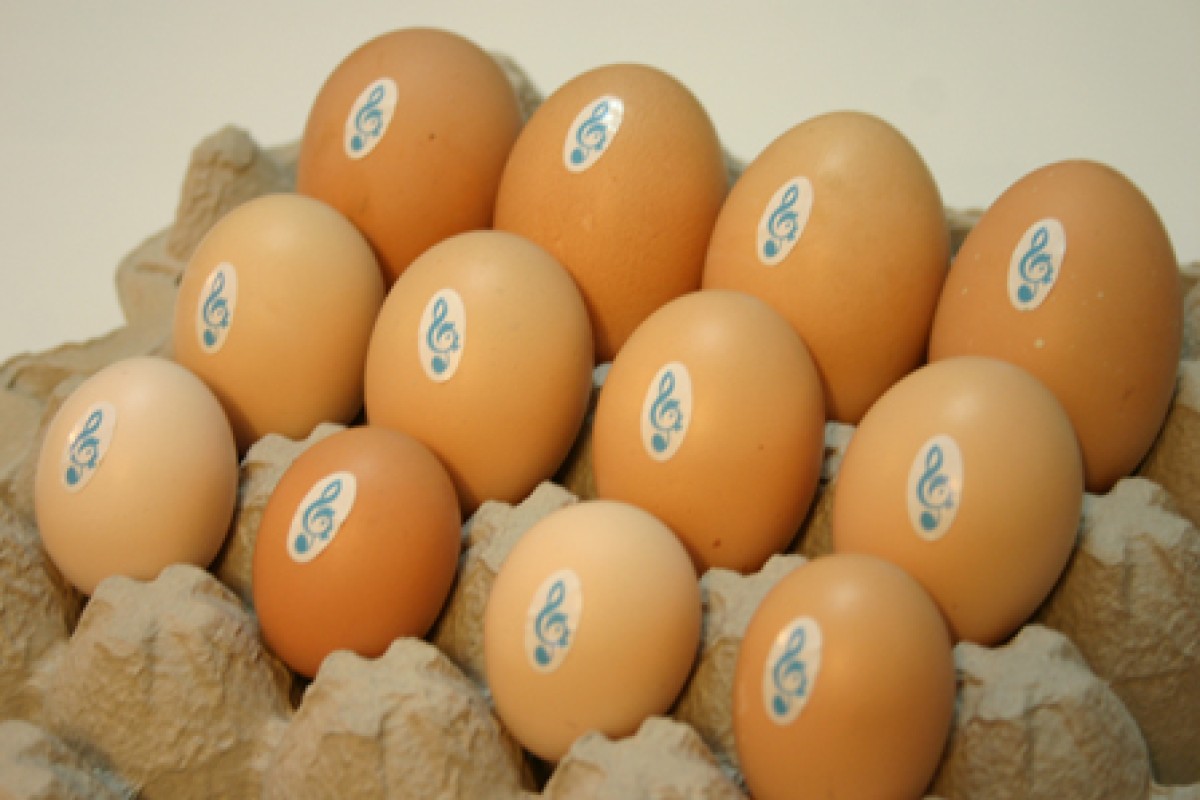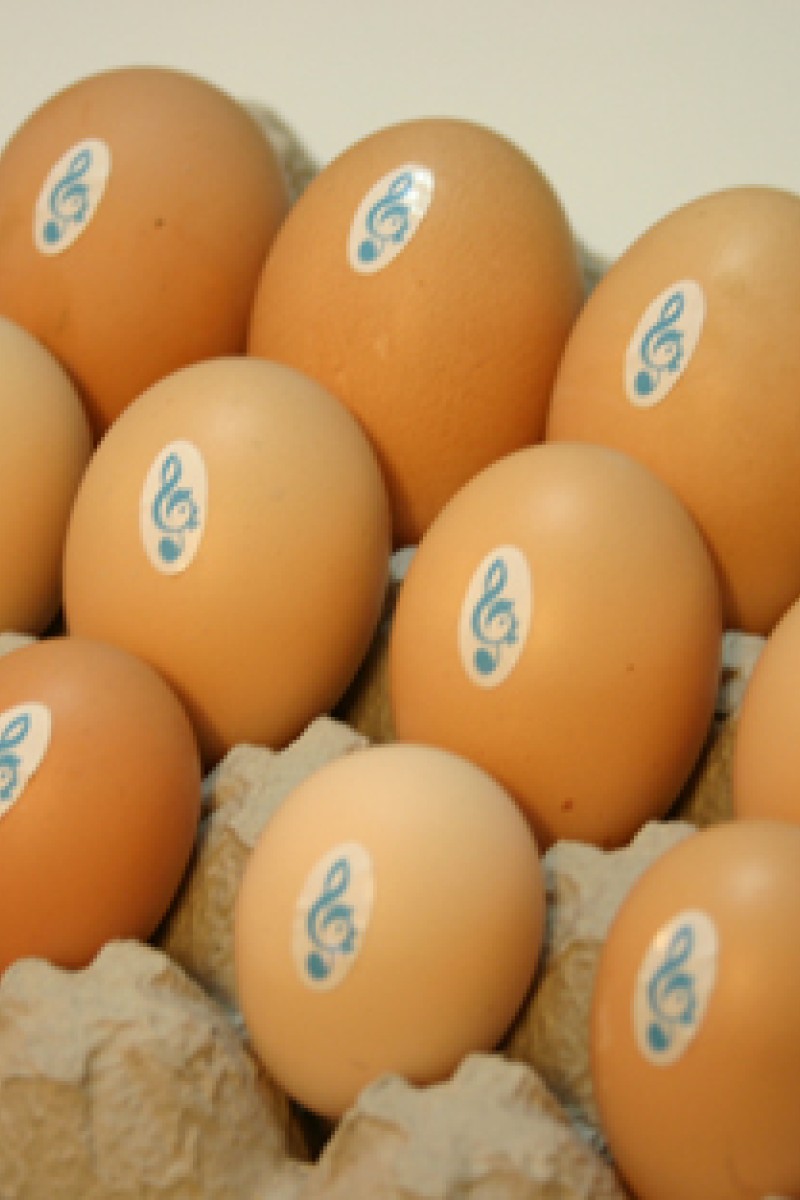 The imported egg is average in taste; The wet market egg is lacking in flavour; The music egg comes top in the test; The music eggs in local organic shops are solid.
The imported egg is average in taste; The wet market egg is lacking in flavour; The music egg comes top in the test; The music eggs in local organic shops are solid."Our farm is located in a quiet area," says Suki Ho Shuk-ki, the marketing director. "Chickens can be scared by noise, and it can cause an unstable diet or even death."
"In Britain, music is played to cows and sheep on farms. In Japan, music is played when growing vegetables too," she says. "We learned that music has a calming effect. We tried it out with our chickens and found that music can have an effect on their diet pattern and growth. We believe that music will make them relaxed and happy, which will help them to produce better eggs."
The Yuen Long farm started producing music eggs three years ago. It experimented with various types of music played at different volumes to find what worked.
"For hens and newborn chicks, we let them listen to softer tunes and melodies. Music by Mozart is a good choice. When the chickens are bigger, they listen to songs sung by people. We want them to get used to us and not be scared. In the final stage, upbeat disco music is played to stimulate exercise."
The farm plays music to the chickens for six to eight hours every day. And the result has been positive: the eggs have a greater chance of containing double yolks than before.
The farm makes freshness a priority and limits its supply. "Supermarkets like to keep a large amount of eggs in store, but we want to focus on quality by selling a small amount to local and organic outlets," Ho says.
She hopes the business will grow because of higher demand for healthy food - despite the price. The special eggs are sold for HK$5 each. The chickens are fed imported corn from Thailand, which drives up the production cost.
However, the main question is: do music eggs taste better?
Young Post conducted a blind taste test of three types of eggs: one produced locally and bought from a wet market; an imported egg from a supermarket; and a music egg.
First, appearance. The music egg had a bigger yolk, almost twice as large as the others. It was also a brighter orange colour. The music egg was firmer when scrambled and had a smoother and creamier quality.
As for taste, the music egg had a stronger flavour, while the locally produced egg was almost bland. Overall, the music egg stood out from the rest with a score of eight out of 10. The imported egg scored six and the local egg five.
